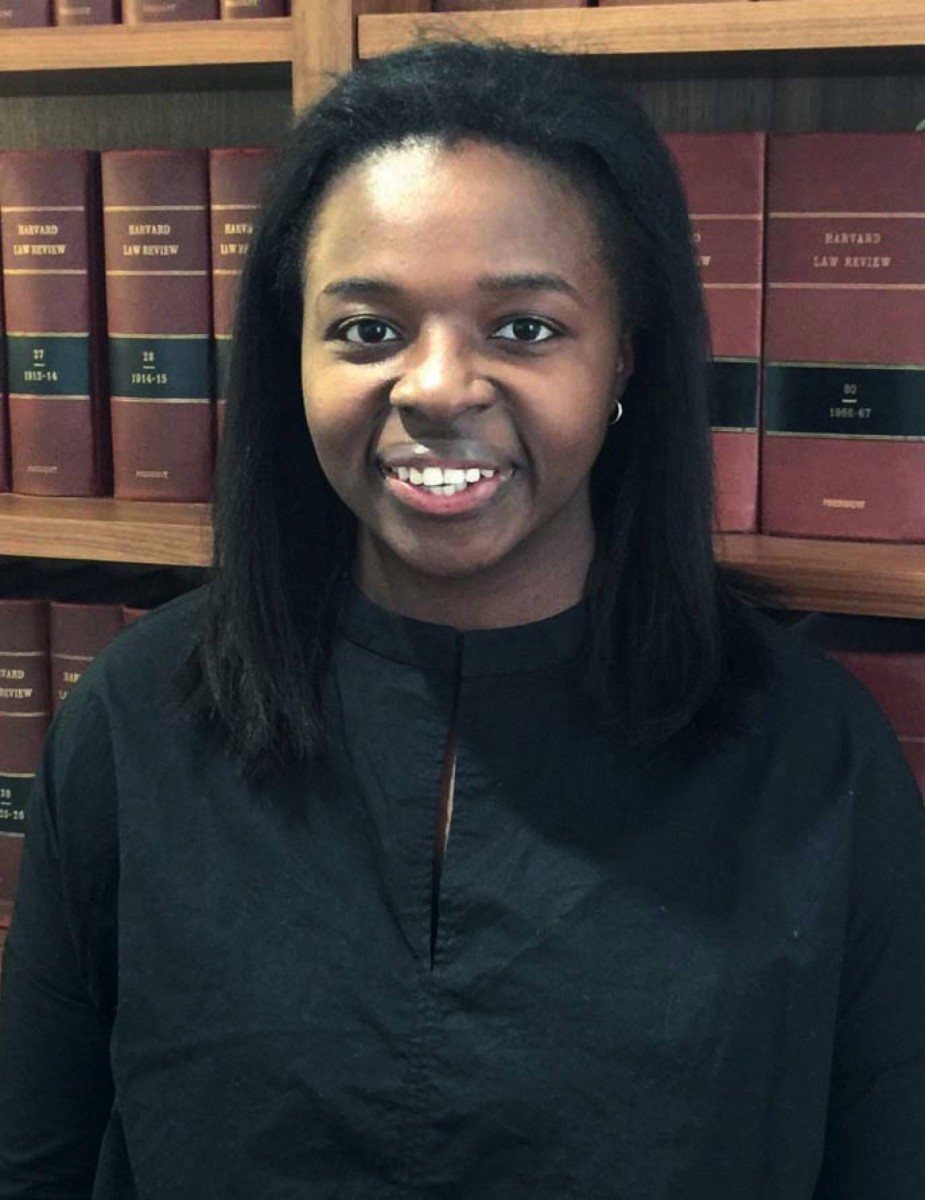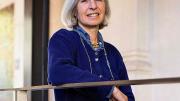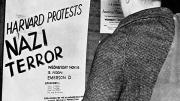Law Leader’s Leavetaking
Martha Minow, dean of Harvard Law School (HLS) since 2009, announced in January that she would step down at the end of the academic year; she plans to return to teaching and scholarship, and to “more robust engagement with the significant issues of the day” (she is vice chair of the Legal Services Corporation). Minow became dean at the depths of the financial crisis, and also had to adjust the school’s budget to accommodate financing of its huge new Wasserstein Caspersen Clinical complex; she supported new clinics and programs in criminal law, immigration, and the needs of military veterans, and invested heavily in loan forgiveness for students pursuing public-service careers, a public-service venture fund, and other fellowships. She departs knowing that HLS’s $305-million capital campaign has “surpassed the initial goal,” a gratifying outcome during its bicentennial year. President Drew Faust has appointed a committee of a dozen faculty members who will advise on the search for Minow’s successor.
The Long Count
The vote on whether to organize a graduate-student union, cast on November 16 and 17, remained unresolved at press time, in early February. Preliminary results, released on December 22 after protracted review of 1,200-plus ballots subject to challenge and individual certification, showed 1,456 students voting against unionization and 1,272 voting in favor. But more than 300 ballots were still subject to challenge on grounds concerning eligibility: more than the margin reported. Accordingly, the National Labor Relations Board, which oversees the voting, has convened hearings, scheduled to begin February 21, to review the ballots and related issues concerning the list of eligible voters and other polling concerns. Read a full report at harvardmag.com/grad-unionvote-17.
Divesting Deniers
Barnard College’s presidential task force to examine divestment recommended in December that the institution “divest from all fossil fuel companies that deny climate science or otherwise seek to thwart efforts to mitigate the impact of climate change.” The recommendation, expected to be endorsed by the trustees’ committee on investments in March, would “align the college’s investments with its core mission, centered on academic freedom and scientific integrity” and would “enable the college to distinguish between companies based on their behavior and willingness to transition to a cleaner economy and could create incentives for the poorest performers to change their ways.” The report echoes the 2015 findings of MIT’s Climate Change Conversation Committee; it argued that “universities should not invest in firms that engage in or actively support activities that are antithetical to their mission.…One activity that is clearly antithetical to MIT’s central mission of education is disinformation, which is the opposite of education. In the arena of climate, well-funded disinformation campaigns are well documented and lie at the heart of this nation’s current paralysis in addressing the issue.” It recommended a formal ethics advisory council to identify and prompt MIT action on such practices, given that “institutions of higher education have a societal obligation to expose disinformation as part of their educational mission. At the very least, they should not invest in it.”
Renaming Regimen
As universities navigate toward coming to terms with past involvements with slavery (see Harvard Law School’s reconsideration of its official shield, at harvardmag.com/hlsshield-16 and harvardmag.com/slaves-16), Yale—which earlier decided to retain the name of alumnus and South Carolina slavery advocate John C. Calhoun on an undergraduate residence—has put in place a new process for reconsidering historic naming decisions. It assumes that renaming should be rare, and undertaken only after consideration of an existing name in light of the university mission, among other factors. Warren professor of American legal history Annette Gordon-Reed, who is also professor of law and of history, and was engaged in the Harvard Law deliberations but opposed the decision to abandon the shield, told The New York Times that the Yale committee “did a very good job fleshing out the issues and creating guideposts on how to deal with a question that is probably going to come up again and again.” Update: On February 11, Yale announced that Calhoun College would be renamed for its doctoral alumna Grace Murray Hopper, a pioneering computer scientist.

ImeIme Umana
Photograph courtesy of ImeIme Umana
Law Review First
The Harvard Law Review has elected its first black woman president. ImeIme Umana ’14, L ’18, assumes the post 27 years after Barack Obama, J.D. ’91, became the Review’s first black male president. As an undergraduate, Umana served as student president of the Harvard Institute of Politics and concentrated in African and African American studies and in government. Elected from a pool of 12 candidates, she will lead more than 90 student editors and staff members at the journal.
Nota Bene
Court pick. As this issue went to press, President Donald J. Trump nominated Neil M. Gorsuch, J.D. ’91, a judge on the U.S. Court of Appeals for the Tenth Circuit, to fill the Supreme Court vacancy created by the death of Justice Antonin Scalia, LL.B. ’60. Gorsuch is a classmate of President Barack Obama, who nominated Merrick B. Garland ’74, J.D. ’77, chief judge of the U.S. Court of Appeals, District of Columbia Circuit, for that post in March 2016. His nomination was never taken up by the Republican-controlled Senate.
Constructing the class of 2021. The College, like most peer institutions, reported another increase in early-action applicants for admission (to 6,473 this year), and a resulting reduction in the proportion accepted (14.5 percent—the lowest rate since early action was reinstated in 2011); read the details at harvardmag.com/earlyaction-16. Yale, which begins welcoming larger undergraduate classes this year, with the opening of two new residences, had nearly 5,100 early applicants—up 9 percent. Update: On February 13, the College announced that a record 39,494 students had applied for admission to the class, up 1.2 percent from last year.
Challenging the ban: Following the Trump administration’s executive order banning immigration to the United States from seven predominantly Muslim countries, President Drew Faust shared a letter of solidarity and action with the Harvard community. Asserting “We are all Harvard,” the president outlined several steps the University would take to protect students and faculty. These include searching for a full-time Muslim chaplain, as well as appointing a staff attorney at Harvard Law School’s Immigration and Refugee Clinic to focus on the mounting needs of undocumented students. The letter appeared in conjunction with a similar message of concern issued by the Association of American Universities, to which Harvard belongs. Harvard and seven other universities filed an amicus brief on February 3 in a case challenging the executive order, arguing that it “undermines the values and contributions of open academic exchange and collaboration.”
Global Harvard. The Fairbank Center for Chinese Studies has opened a joint research venue with Sichuan University, in Chengdu, China—a western complement to the existing Harvard Center Shanghai, meant to facilitate work in Tibetan studies, Chinese minority groups, and the art and architecture of the region.…Separately, the Center for Middle Eastern Studies has opened its first overseas office, for teaching and research, in Tunisia.
Campaign tallies. Although the University will not update its fundraising total until after the end of the fiscal year in June, individual schools have been touting their totals since the tally of “more than $7 billion” was reported last September (see harvardmag.com/7billion-16). By December 31, the Harvard Kennedy School had recorded gifts and pledges of $579 million, well exceeding its $500-million goal. In addition: dean Martha Minow noted that Harvard Law had exceeded its $305 million goal; the Medical School reached $614 million last November, closing in on its $750-million goal; and the Business School has exceeded its $1-billion target—and continues to pursue gifts for its priorities.
Hmx. Harvard Medical School is running a pilot version of HMX, its online “fundamentals” courses that, like the Business School’s HBX offerings, serve diverse learning needs. Modeled on the materials incoming M.D. students take the summer before matriculating in Longwood, the sequences in immunology and physiology are described as suitable for college students interested in medicine (and thus applying to HMS or other schools), individuals exploring other healthcare careers (physician assistants, nursing, pharmacy), high-school students, clinicians, and learners generally. The Harvard community pilot, running this winter and spring, costs $1,000—another indication of professional schools attempting to monetize their teaching online.
Harvardx update. An annual review of Harvard and MIT online courses, published in January and covering 290 courses and 4.5 million participants, shows that about 740,000 of the learners (one-sixth of the total) accessed half or more of each unit’s content. Registrants continue to be overwhelmingly international (71 percent), and include a significant cohort of current or past teachers (32 percent), suggesting interest in continuing education in their fields. Certification for course work leveled off in 2016, once fees were imposed, underscoring the problem of finding a way to elicit a willingness to pay for courses that are expensive to produce but disseminated free online.
Miscellany: Loeb associate professor of the social sciences Laurance A. Ralph, the author of acclaimed anthropological research on inner-city gangs and violence, will move to a tenured appointment at Princeton this fall.…MIT has launched an MITxMicroMasters program in development economics, complementing a 2015 program in supply-chain management; participants complete work online and then may enroll for a campus-based master’s degree.…DuBois professor of the social sciences Lawrence Bobo, chair of the department of African and African American studies, and Martha Minow, dean of Harvard Law School and senior fellow of the Society of Fellows, have been elected fellows of the American Academy of Political and Social Science.…As Jared Kushner ’03 sorted out his financial affairs and ethical obligations in order to serve as senior adviser to his father-in-law, President Donald J. Trump, he was represented by Jamie S. Gorelick ’72, J.D. ’75, former deputy attorney general, former member of the Harvard Board of Overseers, and a partner at WilmerHale, where the Corporation’s senior fellow, William F. Lee, is also a partner.…Sheehan Scarborough ’07, M.Div. ’14, has become BGLTQ student life director in the College, succeeding inaugural director Van Bailey, now at the University of Miami.…The Boston Calling Music Festival, relocating from City Hall Plaza downtown, will offer performances at its new home, the Harvard athletic fields, on May 26-28, Memorial Day weekend.









